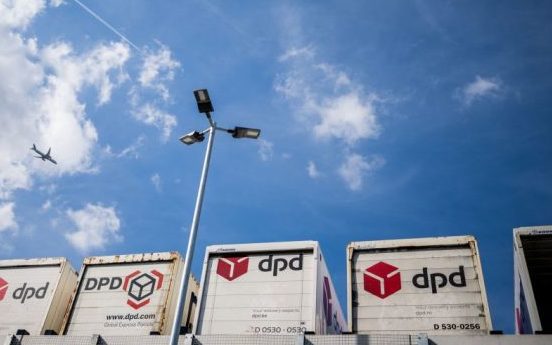When I was not more than nine or ten years old, I sent off in the post for a free poster that I’d seen advertised in a comic. It depicted Superman, whom I held in high regard, scragging a distinctly second-tier villain called Nick O’Teen; the relic of some lame early-eighties anti-smoking campaign. For reasons I can’t now fathom, I burned to have this on my bedroom wall. I remember it now not because of the poster, but because the wait for it to arrive. ‘Allow eight weeks for delivery’, it said. And it really did take eight weeks to show up – which, when you’re nine and you really, really want a Superman poster, might as well be a lifetime.
The very idea of waiting that long for anything, now, will be incomprehensible to a nine-year-old. It’s incomprehensible to an adult. Even next-day delivery is starting to seem a bit sluggish. Online shopping listings, these days, often promise same-day delivery if you get your order in in the morning. And this lightning fulfilment, this near-as-dammit introduction of teleportation to the online consumer economy, what’s more, comes, or seem to come, nearly for free. A couple of extra quid, at most; or bundled in with your Prime account.
If you’re getting something brilliant at a knockdown price someone, somewhere else, is paying for it
It’s like magic. Bing-bong, you answer the door, and your goodies materialise in your hand. Abracadabra. We don’t give much thought to what‘s going on in the false bottom of the top hat, under the false panel in the cabinet, behind the curtain. We’re vaguely, if at all, aware of the febrile hum of an unimaginable logistics network pulsing somewhere in the world out there, but it’s not anywhere near the front of our attention.
There was a glimpse behind the curtain at the end of last week, though, with the Sunday Times‘s report into how a DPD driver, Kamil Zieba, was sentenced to three and a half years in prison after admitting death by careless driving. He mowed down a 69-year-old woman on a roundabout in Brighton in 2020. He was careering over kerbs and pavements, and his dashcam recorded him using his phone, rolling fags, making notes, eating and drinking at the wheel. His victim was so badly torn up by the collision that her son, when he visited her in hospital, did not at first recognise her.
Mr Zieba’s careless driving is in large measure, no question, his personal responsibility. Nobody can blame DPD for his rolling cigarettes on the move. But the evidence before the court suggested he was undeniably also incentivised by the demands of his job to drive carelessly (he was working for DPD through a third-party contractor). It’s hard to see how it could be otherwise.
The court heard that he had been frantic to keep up with his delivery schedule. He was expected to deliver 180 parcels per shift – one every two and a half minutes on average – and if he did not perform as demanded he could face the sack. By way of encouragement, the company had a ‘traffic-light’ system, where a driver’s handheld device would glow red if they were falling behind. The court heard that Mr Zieba had been in the red, and at the time of his collision had managed to claw himself back into amber only by playing fast and loose with the rules of the road. Drivers like him, it’s reported, will work up to eleven-hour shifts without taking a break in order to fulfil their orders. He was getting paid a pound a parcel.
DPD have emphatically denied that there is any pressure on their drivers during their delivery routes. The problem may lie not just on punishing delivery schedules, but in lack of proper regulation. By law, HGV drivers are not allowed to be behind the wheel for more than nine hours a day, and must take a 45-minute break every four and a half hours. Delivery van drivers, with their lighter vehicles, are at present exempt from these strictures.
That lack of red tape is all very business-friendly, and helps bring value to the customers for all those next-day gewgaws – right up until the cost of it is an elderly lady being flattened on a roundabout by a tired, frantic driver pushing past the limits of his abilities seemingly for fear of losing his job. And be it noted that, if you are said elderly lady, it doesn’t make much of a difference to you whether you’re hit by a three-ton delivery truck or an HGV. That cost, as far as DPD and the other parcel delivery services like them go, is what I believe economists refer to as an externality.
There are lots of those in our new, exciting, globalised world. For every appealingly priced T-shirt in a fast-fashion outlet on Oxford Street, there’s a sweatshop worker in the third world enjoying the benefits of deregulation; for every bargain online there’s a warehouse worker peeing in a bottle. Rule of thumb: if you’re getting something brilliant at a knockdown price someone, somewhere else, is paying for it.
Saying ‘that’s just market forces, baby’ doesn’t seem to me an adequate response. The market does what it does with ruthless impersonality – and that’s both why it’s great, and why it needs to be restrained by sensible regulation. The sort of regulation that says you can’t spend eleven hours behind the wheel and be put under pressure to deliver a parcel every two and a half minutes, because that’s obviously crazy, and will have dangerous consequences.
That’s not ‘red tape’: that’s common sense and common decency. And if it means we have to wait a few extra hours for our deliveries, or pay a few extra quid for the privilege of something showing up faster, well: so be it. If nine-year-old me can wait two months for a parcel, 49-year-old me can wait two days.
Got something to add? Join the discussion and comment below.
Get 10 issues for just $10
Subscribe to The Spectator Australia today for the next 10 magazine issues, plus full online access, for just $10.





















Comments
Don't miss out
Join the conversation with other Spectator Australia readers. Subscribe to leave a comment.
SUBSCRIBEAlready a subscriber? Log in